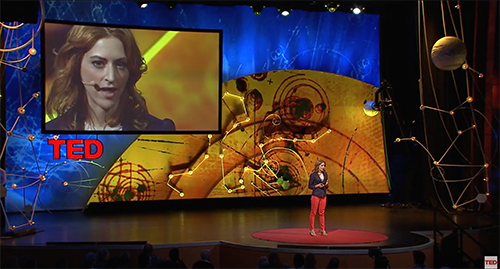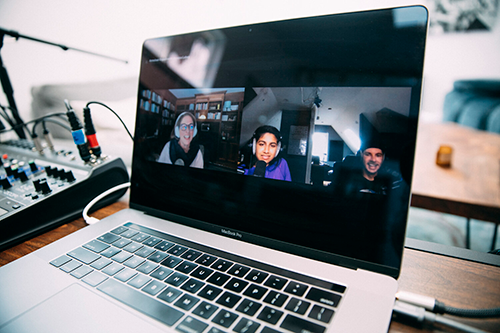Today I would like to talk about anxiety, and how that mixes with how we create and how we share.
I’ve been an artist or writer my entire life, and I’ve always been surrounded by friends who did creative work. I have found that anxiety is a common part of the what it means to write and share your work. It’s like anxiety is the Chewbacca to your Han Solo. Always there as your co-pilot.
I was talking to a friend recently who just signed with her dream literary agent. That was a huge win, and for several days she was practically floating with elation.
But that sensation was soon replaced with a new anxiety. As the agent pitched publishers, the rejection letters soon started coming in.
As a writer, with each new milestone you achieve comes the next one to worry about. I’ve seen this so many times over the years:
- “I can’t get an agent.”
- “I got an agent, but she can’t get a publisher to bite.”
- “I got a publisher, but I was hoping for a bidding war and bigger advance.”
- “My editor wants me to change a key section of my book.”
- “I don’t like the cover the publisher chose.”
- “My book is coming out at the wrong time of year.”
- “I didn’t get the blurb I wanted for the cover.”
- “The book launch party had fewer people attend than I hoped for.”
- “I didn’t make a bestseller list.”
- “It isn’t selling as well as I dreamed.”
- “I didn’t get the big review and media mention I hoped for.”
- “Amazon reviews have halted at a really low number. It’s embarrassing.”
- “I don’t think my agent likes the next book I pitched…”
It goes on and on, and I skipped a lot of mini-anxieties along the way. Author Neil Gaiman reflected on it all this way:
“I started trying to think what the best advice I’d been given over the years was. It came from Stephen King twenty years ago, at the height of the success of Sandman. I was writing a comic that people loved and were taking seriously. King had liked Sandman and my novel with Terry Pratchett, Good Omens, and he saw the madness, the long signing lines, all that, and his advice was this: “This is really great. You should enjoy it.”
“And I didn’t. Best advice I got that I ignored. Instead I worried about it. I worried about the next deadline, the next idea, the next story. There wasn’t a moment for the next fourteen or fifteen years that I wasn’t writing something in my head, or wondering about it. I didn’t stop and look around and go, this is really fun. I wish I’d enjoyed it more. It’s been an amazing ride. But there were parts of the ride I missed, because I was too worried about things going wrong, about what came next, to enjoy the bit I was on.”
“That was the hardest lesson for me, I think: to let go and enjoy the ride, because the ride takes you to some remarkable and unexpected places.”
Too often, when an author “makes it,” that is all that we see from the outside. Them finding success. It’s tempting to boil the narrative down to “That author found a trick that worked.” Followed by the question, “What is that trick?”
When author Marlon James won the Man Booker Prize, he shared his own version of the road to success:
“[Marlon’s] first novel, John Crow’s Devil, was rejected 78 times by publishers, before it was eventually published in 2005.” Asked if he had considered giving up writing, the 44-year-old writer said: “I did give it up. I actually destroyed the manuscript [to my first novel], I even went on my friend’s computer and erased it.” He said he retrieved the text by searching in the email outbox of an old iMac computer.” (source)
78 times. Can you imagine that? I can’t, so I’m going to spell it out:
Me: “Hi, can you publish my book?”
The world:
- No.
- No.
- No.
- No.
- No.
- No.
- No.
- No.
- No.
- No.
- No.
- No.
- No.
- No.
- No.
- No.
- No.
- No.
- No.
- No.
- No.
- No.
- No.
- No.
- No.
- No.
- No.
- No.
- No.
- No.
- No.
- No.
- No.
- No.
- No.
- No.
- No.
- No.
- No.
- No.
- No.
- No.
- No.
- No.
- No.
- No.
- No.
- No.
- No.
- No.
- No.
- No.
- No.
- No.
- No.
- No.
- No.
- No.
- No.
- No.
- No.
- No.
- No.
- No.
- No.
- No.
- No.
- No.
- No.
- No.
- No.
- No.
- No.
- No.
- No.
- No.
- No.
- No.
And that’s just for his first novel. He wrote another a few years later. Then another, which is the one that won the Man Booker Prize.
Recently I’ve been obsessing about this 2.5 hour interview I’ve been watching with a son and his father. You see, I follow this YouTube channel from a music shop in England called Andertons. They sell guitars, drums, and other musical instruments.
Online they have 640,000 subscribers on YouTube and a total of 202,000,000 views on all of their videos. It’s just huge.
But it started as a small shop in the early 1960s with the grandfather and father. Today the grandson runs it. The interview tracked the progression of the business over nearly five decades. What jumped out at me the most was this line:
“When you are self-employed, there is a terrible inner fear — all the time — that someone is going to turn the tap off. (He snaps fingers.) That business is just going to dry up. Business will just stop. The business sucks up all your money, so you are constantly putting everything at risk.”
In the interview they talk again and again about the big risks they took. About the difficult years. About luck and opportunity. Year by year, decade by decade.
It reminded me of how many writers and artists feel. That their next idea will be there last. That they missed the boat. That the marketplace will shift away from what they write. That they can’t keep up with new online trends for how to connect their book with readers.
They may even get mad that they have to consider these things at all, thinking, “Gee, shouldn’t a writer just write?”
Yes, you can just write. In fact, I’ve always loved the idea of art for the sake of art. To create simply for the sake of creating.
But…
If you want to succeed in the marketplace, that is a decision that you make to engage with it. To publish. To share your work and hope others notice and buy and talk about it. To know that your work grows and expands when someone reads it. That something magical happens when you write, but a different kind of magic happens when someone reads it. That is where your words mix with the life experience of the reader and something entirely new is created in the process.
This week I interviewed artist Jay Alders about how he has been managing with all that is going on in the world. He works full-time as an artist, his wife runs a business as well, and they are raising a young family with three kids.
What I wanted to ask him most about was anxiety. He was incredibly honest about what he and his wife do to balance working from home, investing in their own physical and mental health, and living a life based on what they want to create. There were lots of useful tips — you can listen to our entire conversation here.
What can we all do about this to be able to create and share while managing anxiety? Watch Kelly McGonigal’s amazing TED talk called “How to make stress your friend.”

And check out her books:
- The Upside of Stress: Why Stress Is Good for You, and How to Get Good at It
- The Joy of Movement: How exercise helps us find happiness, hope, connection, and courage
Just as I finished writing this essay, I received an email from author Jessica Lahey. When I interviewed her on my podcast, she talked about the ways she was trying to connect with Dax Shepard and how much she appreciated his podcast, Armchair Expert.
Well, after all of her efforts to connect with him, this past week she actually appeared as a guest on his podcast! You can listen to it here.
Success (however you define it) takes time. Keep creating. Keep sharing. Your work matters.
Thanks!
-Dan

